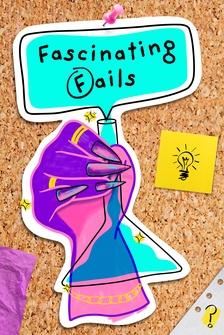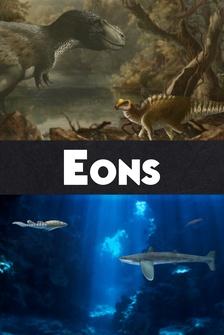- [Cait] We are on the hunt for arguably one of the most dangerous gases in the world.
- [Nathan] And this cover could actually fly if there were a spark.
- [Cait] Methane.
- The greenhouse gas that everybody should be talking about, but very few people have heard of.
- [Arlo] And it could be leaking right outside your home.
- [Nathan] That's a big leak, that's a leak.
- [Bob] That could be a hazardous leak - [Arlo] We plan on finding out what we can do about it.
- Oh god, oh god!
- Oh no!
- [Cait] Or fall on our butts trying.
- I got at least four feet.
- Little known fact: I have what you might call an impaired sense of smell.
- I had to smell his raw chicken every time he cooked.
- I used to fart in front of him all the time.
- He would be halfway through a bowl of cereal before realizing the milk was sour which, I mean, gross!
- Now, as bad as spoiled food and flatulence might sound, What I am really afraid of is that I won't be able to smell a natural gas leak.
See, where I live, natural gas powers a lot of our homes.
And trust me when I say this.
(explosion booms) It is explosive.
That is why today, I am joining Bob Ackley.
Looking great, Bob!
and Nathan Phillips.
- [Nathan] You want to take a look back here?
- [Arlo] Who can detect methane, the main ingredient in natural gas, using the equipment stuffed in this van.
- A little stream of air going into this tubing, and this tubing goes right back into the machine right in here.
As we drive the city streets, pulling in air and measuring the methane value every second.
Three five, I smell it.
We're mapping where the leaks are.
- [Arlo] To my horror, it doesn't take long to start finding leaks.
They are everywhere.
So, all those spikes right over there?
- [Nathan] Leak, leak, leak, leak, leak, leak, leak, leak.
- [Arlo] These leaks can be really dangerous.
- [Nathan] We've just detected that there is a leak in this vicinity.
- [Arlo] Which is why when Nathan and Bob detect a big one, they hop out of the car straight into traffic - [Bob] Slow down!
- [Arlo] trying to pin down its source.
- 1.75%, then if it got to 4% it would become explosive and this cover could actually fly if there were a spark So a small leak building up over a large enough period of time into some kind of a closed environment can become explosive.
So you cannot just say, oh, it's a small leak, it's not dangerous.
- [Arlo] And it's not just leaking out of manholes.
- [Nathan] There's gas in this fixture, and this is not a good thing!
It's venting out of here, if I closed this off with my hand.
- See, now it's at.
- Oh wow!
- A percent.
This is really concerning because if it got to 4% then it would become an explosion hazard and all it takes is a little bit of static electricity, a little electric thing like this.
- [Arlo] So this raises the question: why do we use something so terrifyingly dangerous to heat our homes?
- The very thing that makes gas dangerous is kind of the reason why we use it in the first place.
So methane is like your simplest hydrocarbon.
CH4, it doesn't get that much simpler than that.
- [Arlo] Methane has one carbon atom bonded to four hydrogen atoms.
It can react with molecules of oxygen in the air.
The breaking and remaking of these bonds releases a lot of energy, and results in the formation of carbon dioxide and water.
Pound for pound, it actually emits less carbon dioxide than coal or oil, making it what many consider to be an essential bridge fuel for lowering global emissions.
- But, that also creates some problems 28%.
- Up on the lawn!
- [Nathan] 27%.
- [Arlo] And this is just like a family's home.
- Because of previous disasters where people were basically engulfed in gas but they couldn't smell it and there was explosions and people died, that led to requirements to add an odorant into the gas, which have the smell of something like rotten eggs.
Most humans are able to pick up that scent quite readily and that's the signal that there's a gas leak.
- Now, have you not had a sense of smell for many years?
- [Arlo] For many years, since I was 8.
- [Bob] Was there an event?
- [Arlo] Yeah, when I was little, there was a water bottle that was in the kitchen, I, you know, chugged it all down, turns out it was bleach.
- Oh no.
- Oh!
Well hey, you're a miracle, you're a walking miracle, man!
- [Arlo] There you go!
(laughs) - [Nathan] But that is disturbing that if you don't have a good sense of smell, you don't have the tools to keep yourself safe.
- [Arlo] Exactly.
This is particularly concerning because of how widespread these leaks really are.
- So this was the intersection where we stopped.
There's probably 3,000 plus leaks in the city of Boston.
Some do get fixed, new ones emerge.
And it's like we're treading water.
- [Arlo] And it's not just in Boston.
- [Nathan] This is a widespread problem along the Eastern Seaboard, as well as really any city or town that has aging pipeline infrastructure.
- [Arlo] It is also not just a problem for our immediate safety.
- No one wants to see someone get hurt by a gas leak exploding.
And so that's like a problem at the point of the leak.
But at the global level, methane is like a greenhouse gas on steroids.
- [Cait] That's right, this little molecule not only has the power to heat our homes, it has the power to seriously heat our planet.
And to better understand this I've come to this swamp with MIT Environmental Engineer Desiree Plata.
- We're going to try and catch us some methane.
Methane's naturally forming at the bottom of this swamp.
Okay, so now I'm disturbing the sediments, and you can see all that rich methane just coming up, and the question is what's the concentration of methane in those bubbles, wow, there's a lot of it there!
- That's a nice methane sample - It is, yeah.
In a swamp or a bog you get an accumulation of organic matter.
So decaying trees or leaves or other material that's in the bog and underwater.
- [Cait] And it isn't just swamps.
Methane can form in other environments, too.
It even forms in the guts of cows and sheep.
- Anywhere where you start to lose oxygen, this population of bacteria that generate methane tends to take over and dominate.
And so it's a natural process that occurs that generates these methane molecules.
- [Cait] But, just because it's natural, doesn't mean it is harmless.
Because it is still a potent greenhouse gas.
- Immediately after methane's released to the atmosphere, it does about 120 times as much damage as CO2, pound for pound.
- [Cait] This is a problem, because about half of methane emissions come from natural sources.
And global warming could actually speed up this process.
For example, thawing permafrost could release massive amounts of methane into the atmosphere.
But why is Methane so much more powerful than CO2 as a Greenhouse gas?
- I like to say it's because molecules love to dance.
- [Cait] The atoms that make up molecules basically move around a bit.
They vibrate!
- [Desiree] Methane happens to have some great vibrational frequencies.
The frequencies of those vibrations overlap with the frequencies of the outgoing energy that's trying to leave the Earth, but gets trapped because methane grabs onto it and holds on to that energy.
- [Caitlin] The methane then re-radiates some of that energy back towards the Earth, warming the planet.
- [Desiree] Molecule to molecule, CO2 is not as potent a greenhouse gas as methane 'cause methane has a lot more vibrational modes that are kind of in the sweet spot for absorbing heat energy.
- [Cait] So basically methane is a better dancer than carbon dioxide?
- Methane's a better dancer than carbon dioxide.
- [Cait] It turns out that methane is such an effective greenhouse gas, that the solution for a concentrated leak is to burn it into CO2!
That's one of the reasons why you might see gas flaring at, for example, an oil well where methane is also leaking.
- It's important to turn it into anything else, even if that other thing is a CO2 molecule.
- [Arlo] It is actually methane's vibrational and rotational modes, or, in other words, its dancing abilities, that make Nathan and Bob's detectors work.
- [Nathan] And in that box there are three very highly polished and expensive mirrors.
And a little laser is shot at the mirrors and it bounces around and the laser light, it will decay in time.
- [Arlo] Similar to how Methane absorbs energy trying to leave the Earth, it also absorbs the light emitted from the laser, which is how the detector knows that methane is present.
And, if the van wasn't enough for you, they have an even more mobile version.
- [Nathan] A backpack unit which uses the same exact technology.
- [Arlo] I get to ride around with a laser on my back.
- [Nathan] Yeah, you'll look like a geek, but honestly you kinda already do, so it will fit just perfectly.
- [Arlo] That is one serious backpack - [Bob] This thing retails for $40,000.
- [Arlo] Did you say $40,000?
- [Nathan] That's why you should be very nervous when you're on that bike with that thing.
- [Arlo] Yeah, you should've told me that afterwards!
(jazzy music) - [Nathan] There you go.
- [Arlo] You know what, I feel like a Ghostbuster.
- [Bob] You are a Ghostbuster, you don't feel like it, you are!
Be careful now, it's 40 grand you're gonna owe me.
- [Arlo] Most of the time, only the leaks that are concentrated enough to be an explosion hazard are fixed, because it's considered too expensive, and there's just not enough incentive to fix them.
- [Cait] All of the leaks we've found today, in the swamp and in the city, are too diffuse to actually burn or explode.
- Nope, no bubbles.
In order to ignite methane it has to be at a high enough concentration.
- [Cait] And this is actually a problem.
It means methane is seeping into the atmosphere from all the small leaks all over the place.
And it adds up.
- [Arlo] Nathan estimates that 10% of Massachusetts greenhouse gas footprint is from previously unaccounted for natural gas leaks.
So what can we do about this if we can't burn these leaks?
- [Cait] Is there a way we could somehow capture them?
- Microorganisms can use methane to generate energy.
In addition to being able to make methane, they can consume it.
They do that at really low levels of methane in bogs and swamps.
- [Cait] Inside her lab at MIT, Desiree and her team have developed an ingenious system to capture methane at low concentrations, using a chemical catalyst that mimics the process microbes use.
- So it's just like flaring or burning or any other combustion process.
Take methane, and turn it into CO2.
But it happens at concentrations of methane that are so low you could never actually light them on fire.
- [Cait] While this direct-air-capture methane system is still in the lab for now, Desiree imagines that it could be commercialized and installed in places where methane is leaking, like in the air handling system of dairy barns, or in mines where methane leaks.
Even in cities.
- If you think about a city, on the roof of every large building, there's a big air handler unit that's pulling air into that building.
In that unit, you could stand up a packing of this catalyst that could catch the methane before it gets distributed over the Earth's surface.
- [Arlo] And Nathan's team has also identified a strategy for dealing with our leaky pipe infrastructure.
- A fraction of the gas leaks amount to a majority of the leaked gas.
We call those super emitters.
And so if we can find and patch those super emitters, then instead of replacing this 19th century infrastructure, we can triage it while we strategically transition off of it.
- [Cait] Methane is one potent molecule, literally.
It powers many homes, but it's also a greenhouse gas, so leaks from its extraction and distribution are a major problem.
And since global warming itself could lead to even more natural methane emissions the time to solve the methane problem is now.
- Methane does most of its damage near term.
If we can remove methane from the atmosphere now, that will buy us much needed time to transition our energy systems, and adapt and respond to the changing climate.
- So, I fell in the bog.
- [Crew] Oh no.
- It was a little bit of a disaster.
I am totally soaked.
Like totally, totally, totally soaked.
Can you please put these in the trunk for me?
(laughs)














